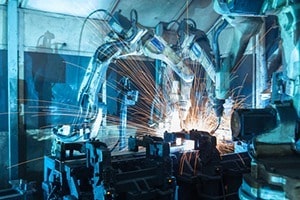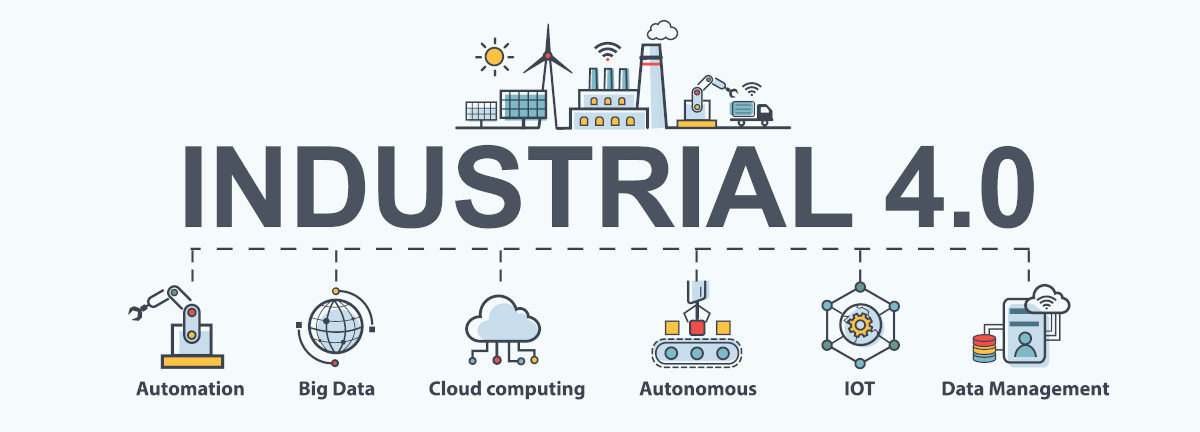What is Industry 4.0?
After the previous three industrial revolutions – the steam engine, mass production and automation through computers – everyone is now talking about Industry 4.0 as the digital revolution. Basically, the term was created as a marketing term and has its origins in a high-tech industry project by the German government in 2011, although the topic has been important in industry for some time. The fusion of digitalization and production technology brings many advantages for the end customer, as it is possible to manufacture products on a customer-specific basis. Digital and smart technologies automate and network all production processes. People, machines, products and entire systems communicate with each other and are in constant exchange.
Smart factory – the heart of Industry 4.0
At the heart of Industry 4.0 is the so-called smart factory. The building blocks of a smart factory include intelligent machines, control systems and sensors. A large amount of data is produced, which then has to be processed. Every component and every product is fitted with a chip. This ensures the traceability of the individual production stages.
Change in the world of work
Despite increasing digitalization, people remain an elementary component in production companies. As a so-called “augmented operator”, it controls and checks all processes in the production process. In addition, the new communication technologies are reducing the proportion of routine tasks. Digitization may lead to increased job shifts, as employees will be required to have more skills for upstream and downstream work processes in the future.
Advantages of Industry 4.0:
- New software and hardware ensures simplification of processes
- Transparent supply chain
- Simplification of ordering processes
- Big data enables optimization of inventories
- Error prevention through process automation
- Efficiency and employee satisfaction can be increased
Disadvantages of Industry 4.0:
- The structure of Industry 4.0 can be very vulnerable
- Data protection
- Uncertainty due to high investment costs
- Lack of acceptance
- High expectations

